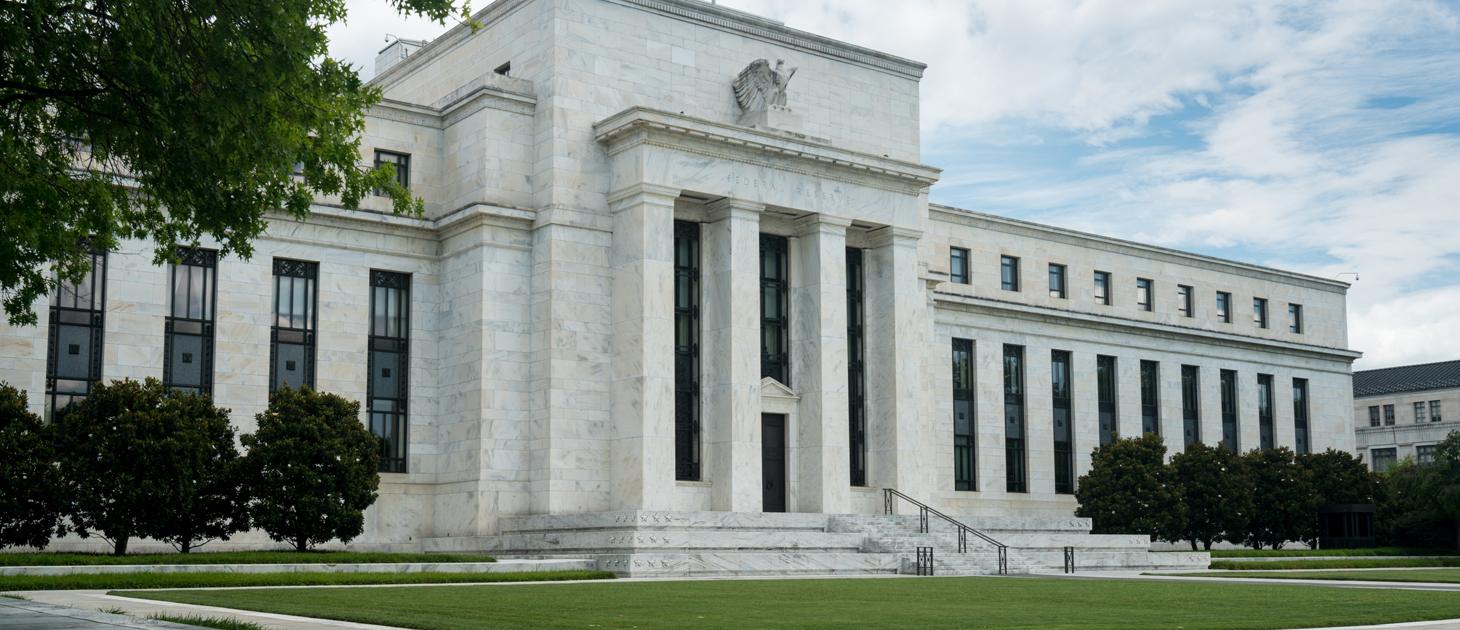Fed’s Rate Freeze Sets Sober Mood for 2020
Experts say steady interest rates indicate a recession is now unlikely, but investors should expect modest performance in 2020.

Updated on Dec. 11
With the Fed’s decision to maintain key interest rates today, investors can be assured a recession is unlikely to happen in the next year, but they should also expect modest performance in 2020.
The central bank maintained the federal funds rate on Dec. 11 at the 1.5% to 1.75% range following the meeting of its decision-making body, ending a series of rate reductions that began in July.
According to Robert Johnson, a finance professor at Creighton University who spoke before the Fed’s decision Wednesday, recent employment gains and the lessened probability of a recession in 2020 has brightened the once-dim outlook. “For the first time this year, there is no obvious direction that the Fed is leaning toward regarding future rate cuts or hikes,” he says.
The Fed’s Board of Governors would have agreed with Johnson. The Federal Open Market Committee voted unanimously to stay interest rates on the grounds that current monetary policy is “appropriate to support sustained expansion of economic activity,” they said in a statement.
Returns for both equities and fixed income were positive in 2019, says Johnson, who is also the chair and CEO of Economic Index Associates, a New York-based firm that constructs investable indexes based on Federal Reserve policy. But he advises investors to temper their expectations for 2020, owing to mounting pressures at home and abroad that could contribue to lower than anticipated GDP growth.
“Both trade uncertainty and political uncertainty are paramount in investors’ minds and could negatively impact the economy moving forward,” he says.
In a set of economic projections released by the central bank, GDP growth is expected to continue a shallow decent into 2020 and following years but remain near 2%. “With a strong household sector and supportive monetary and financial conditions, we expect moderate growth to continue,” Federal Reserve Chairman Jerome Powell said during a press conference following the meeting.
While threats from trade, weak overseas economic growth and a downturn in manufacturing haven’t gone away, the strength of the job market and consumer spending is keeping recession risks at bay, says Greg McBride, senior vice president and chief financial analyst at financial services company Bankrate.com.
“With the Fed holding rates at low levels and buying bonds in their ‘don’t call it QE’ efforts to stabilize the repo market, the Fed will be a tailwind for the markets in 2020 and be one less thing for investors to worry about.”
GREG MCBRIDE
Senior Vice President and Chief Financial Analyst, Bankrate.com
“With the Fed holding rates at low levels and buying bonds in their ‘don’t call it QE’ efforts to stabilize the repo market, the Fed will be a tailwind for the markets in 2020 and be one less thing for investors to worry about,” he says.
Fed projections showed unemployment would remain below 4% through 2020, with likihood of rising in subsequent years.
In December 2018, Powell talked about reaching a neutral point where interest rates neither hold back economic development nor enable unsustainable growth. One year later, it seems the central bank is at the same point again as competing indicators raise uncertainty over which direction the economy will go in the long run.
For the time being, however, monetary policy will likely hold steady until a clearer picture emerges, McBride says. “The Fed is on the sidelines for the foreseeable future and only likely to resume cutting interest rates in response to a verifiable turn in the economy.”
Are you an ACG member who enjoys reading the public policy roundup? Join our Public Policy Interest Group to receive even more in-depth coverage of federal policy activity impacting the middle market, as well as opportunities to help shape ACG’s advocacy efforts.

Benjamin Glick is ACG Global’s marketing and communications associate.


